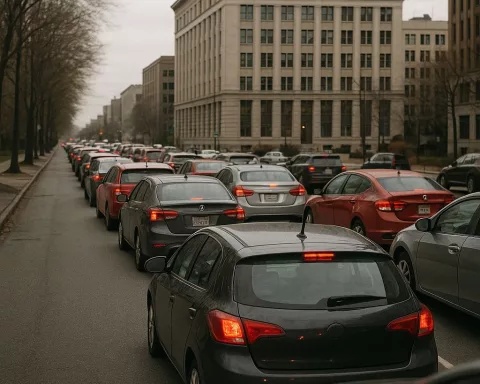Ramadan in Cape Town is a magical time filled with community and reflection. As the sun sets, families come together to break their fast with iftaar, starting with dates and water, and enjoy delicious traditional dishes. This month is not just about fasting; it’s a special journey of spiritual growth that brings people closer to Allah and to each other. When Ramadan ends, everyone celebrates Eid al-Fitr with joy, wearing their best clothes, sharing gifts, and feasting together. The warmth and unity of this time create lasting bonds within the diverse community of Cape Town.
What is Ramadan and how is it celebrated in Cape Town?
Ramadan is the ninth month of the Islamic lunar calendar, a time for fasting, reflection, and community bonding. In Cape Town, Muslim families gather for iftaar, share prayers, and engage in acts of charity, creating a vibrant atmosphere of unity and spiritual growth throughout the month.
The Enchantment of Cape Town at Dusk
As the sun dips below the horizon in Cape Town, a captivating transformation takes place. Ordinary streets become vibrant with anticipation as the city’s Muslim community prepares for the sacred month of Ramadan. This period, the ninth month of the Islamic lunar calendar, serves as a profound time for spiritual reflection and communal bonding. Exploring its intricacies offers a glimpse into a rich tapestry of Islamic faith and culture, where history and tradition seamlessly intertwine.
Each year, Ramadan follows the lunar calendar, moving backward by about 10 to 12 days on the Gregorian calendar. This annual shift lends a unique character to the month, introducing a diverse experience as it cycles through the seasons. Muslims across the globe eagerly await the sighting of the new moon, which signals the start of this holy period. In South Africa, the Crescent Observers Society, lovingly referred to as the maankykers, along with observatories at places like Signal Hill and Three Anchor Bay, play an essential role. Their moon sightings, announced over local radio stations like Voice of the Cape, mark the beginning of Ramadan and later, Eid al-Fitr.
As dusk settles, marking the close of each day of fasting, families come together for iftaar, the meal that breaks the fast. This cherished moment often begins with dates and water, following the tradition of the Prophet Muhammad. Cape Malay communities, known for their vibrant cultural heritage, add their unique touch to these evenings, offering a delicious array of traditional snacks and boeber, a sweet, creamy drink, on the 15th night of Ramadan, affectionately known as boeberaand.
A Journey of Spiritual Renewal
Ramadan encompasses more than just abstaining from food and drink from dawn until sunset. It represents a profound spiritual journey, encouraging Muslims to strengthen their connection with Allah. Fasting is one of the five pillars of Islam, a duty for all healthy, post-pubescent Muslims, although exceptions exist for those who are ill, elderly, or facing specific circumstances such as pregnancy or menstruation. For many, Ramadan serves as a spiritual reset, a time to cultivate patience, empathy, and harmony within the community.
The spiritual essence of Ramadan reaches its peak during the final ten days, particularly on Laylatul Qadr, the Night of Power. According to the Qur’an, this night is significant as it commemorates the moment when Angel Jibreel revealed the first verses of the Qur’an to the Prophet Muhammad. Many believe that on this night, the rewards for good deeds multiply significantly, motivating Muslims to engage in prayer, Qur’anic recitation, and reflection with increased devotion.
In Cape Town, the atmosphere during Ramadan is unparalleled. Families, friends, and even strangers come together to share meals, prayers, and acts of charity, reinforcing a strong sense of community. The city pulses with a spirit of generosity and unity. This camaraderie extends to non-Muslim friends and neighbors, who often partake in the celebrations and learn about the significance of Ramadan, fostering mutual respect and understanding.
Celebrating Eid: A Culmination of Spiritual Efforts
The conclusion of Ramadan leads to Eid al-Fitr, a festive day that begins with a special congregational prayer held outdoors. On this day, families don their finest attire, exchange gifts, and visit friends and relatives. The celebration marks not just the end of fasting but also the spiritual renewal accomplished throughout the month. It is a time of joy, reflection, and gratitude, often accompanied by lavish feasts that leave participants with full hearts and fuller stomachs.
Later in the year, Eid al-Adha occurs during Dhul-Hijjah, commemorating Prophet Ibrahim’s devotion to Allah, marked by the ritual of sacrifice. This festival coincides with the Hajj pilgrimage, another pillar of Islam, where Muslims from around the world gather in Mecca. It is a testament to faith and a reminder of the importance of sacrifice and obedience to Allah.
In Cape Town, as in many parts of the world, the spirit of Ramadan transcends religious observance alone. It is a time when the community’s bond strengthens, and the city’s diverse population unites in shared respect and understanding. The customs of Ramadan, deeply rooted in tradition, reflect values of compassion, discipline, and spiritual growth.
The Enduring Impact of Ramadan
While some might find the concept of fasting daunting, for many Muslims, Ramadan holds a cherished place in their hearts. It is a month that draws them closer to their faith, their families, and their community. The daily fasts, nightly prayers, and communal iftaars weave a tapestry of spiritual and social enrichment that resonates long after the month has ended.
The cultural expressions of Ramadan, particularly in places like Cape Town, showcase the harmonious blend of historical traditions with contemporary practices. This blend creates a unique experience each year, emphasizing the universality of its core values while celebrating the local customs that enrich the global Islamic community. Through these customs, Ramadan becomes a beacon of spiritual and cultural significance, not only for Muslims but for all who experience its beauty and depth.
“`markdown
FAQ about Ramadan in Cape Town
What is Ramadan and how is it celebrated in Cape Town?
Ramadan is the ninth month of the Islamic lunar calendar, a time dedicated to fasting, reflection, and community bonding. In Cape Town, Muslim families gather for iftaar, share prayers, and engage in acts of charity, creating a vibrant atmosphere of unity and spiritual growth throughout the month.
How does the community prepare for Ramadan in Cape Town?
As Ramadan approaches, the Muslim community prepares by sighting the new moon, which signifies the start of the holy month. Organizations like the Crescent Observers Society (maankykers) and local observatories help with moon sightings, which are announced over local radio stations such as Voice of the Cape, marking the beginning of Ramadan and later Eid al-Fitr.
What is the significance of iftaar during Ramadan?
Iftaar is the meal that breaks the fast at sunset. It typically begins with dates and water, following the tradition of the Prophet Muhammad. In Cape Town, this meal fosters a sense of community as families come together, often supplemented by traditional dishes unique to the Cape Malay culture, including snacks and boeber, a sweet drink enjoyed on special nights.
Why is fasting important during Ramadan?
Fasting during Ramadan is one of the five pillars of Islam and serves as a form of spiritual renewal. It encourages Muslims to strengthen their connection with Allah, cultivate virtues like patience and empathy, and engage in community service. Exceptions exist for those who are ill, elderly, or dealing with specific circumstances such as pregnancy or menstruation.
What special practices occur during the final days of Ramadan?
The last ten days of Ramadan hold special significance, particularly Laylatul Qadr, the Night of Power. This night commemorates the revelation of the Qur’an and is believed to offer multiplied rewards for good deeds. During this time, Muslims engage in heightened prayer, Qur’anic recitation, and reflection to deepen their spiritual connection.
How is Eid al-Fitr celebrated in Cape Town?
Eid al-Fitr marks the conclusion of Ramadan and is celebrated with a special congregational prayer, often held outdoors. Families wear their finest clothes, exchange gifts, and feast together, marking a time of joy, reflection, and gratitude. The spirit of community extends beyond the Muslim population, as neighbors and friends often participate in the celebrations, fostering mutual respect and understanding.
“`











